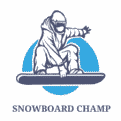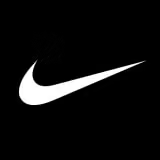Snowboard Trip Cost Estimator
Dreaming of the mountains but worried about the cost? Plan your perfect snowboard trip with confidence. This tool breaks down all the expenses, so you can budget accurately and avoid surprises.
Your Estimated Trip Budget
Budgeting Your First Snowboard Trip: A Beginner’s Guide
The thrill of planning your first snowboard trip is immense, but it can quickly be overshadowed by one big question: “How much is this actually going to cost?” A snowboard trip isn’t just one expense; it’s a collection of many smaller costs that can add up fast. Understanding these costs is the key to planning a trip that fits your budget, whether you’re looking for a wallet-friendly weekend or a full-blown mountain vacation. This guide and estimator will walk you through every line item, so you can spend less time worrying about money and more time focusing on linking your turns.

From the Desk of Alex Rivera, Adventure Travel Analyst
For over a decade, Alex has analyzed travel costs for major publications, specializing in adventure sports. “The sticker shock of a premium lift ticket can scare beginners away,” Alex notes. “But that’s only one piece of the puzzle. The real power is in knowing which costs are fixed and which are flexible. You can’t change the price of a lift ticket, but you have huge control over food, lodging, and travel. A well-budgeted trip isn’t about being cheap; it’s about being smart with your money to maximize your time on the snow.”
Breaking Down the Costs: Where Your Money Goes
Our calculator covers the seven major expense categories of any snowboard trip. Here’s a closer look at each one.
1. Destination Tier (The Biggest Factor)
Not all resorts are created equal, especially when it comes to price. We’ve simplified this with tiers:
- Budget / Local Hill: These are your small, community-focused ski areas. They have fewer lifts and less terrain but offer incredibly affordable lift tickets and a great, low-pressure learning environment. Perfect for a day trip or your first time on snow.
- Mid-Range / Regional Resort: These are the workhorses of the industry. Think of popular resorts in Vermont, the Poconos, or the Lake Tahoe area. They have plenty of terrain, good infrastructure, and a vibrant town or village, but without the five-star price tag of the mega-resorts.
- Premium / Destination Resort: These are the world-famous resorts you see in magazines—Vail, Aspen, Park City, Whistler. They offer massive terrain, impeccable grooming, and luxury amenities, but come with the highest costs for lift tickets, food, and lodging.
2. Lift Tickets: Your Pass to the Slopes
This is often the single largest daily expense. Prices are dynamic and vary based on the day of the week (weekends/holidays are most expensive), the time of season, and how far in advance you buy. Pro Tip: Always buy your lift tickets online, in advance. Buying at the ticket window on the day of is the most expensive way to do it.
3. Gear: To Rent or To Buy?
For your first few trips, renting is almost always the smart choice. A typical rental package (board, boots, bindings) costs $50-$75 per day. It allows you to try the sport without a huge upfront investment. You should only consider buying gear once you’re committed to snowboarding at least 7-10 days per season.
4. Accommodation: From Bunk to Bougie
Your second-biggest expense. Options range from budget-friendly hostels and shared Airbnbs to mid-range hotels and luxurious ski-in/ski-out condos. The further you stay from the base of the mountain, the cheaper it will generally be.
5. Food & Drink: Fuel for the Slopes
On-mountain food is notoriously expensive ($25 for a burger is common). The easiest way to save money is to pack your own lunch, snacks, and a water bottle. Even having breakfast in your room and packing a few granola bars can save you $30-$50 per day.
6. Travel: Getting There
This cost varies wildly. It could be a tank of gas for a local trip or hundreds of dollars for flights and a rental car for a destination trip. Don’t forget to factor in airline baggage fees if you’re flying with your own snowboard gear.
Essential Gear to Own (Even if You’re Renting)
As an Amazon Associate, we earn from qualifying purchases. Owning these key items will dramatically improve your comfort and safety, and they’ll save you money on rentals in the long run.

Smith Squad Snow Goggles
Rental goggles are often scratched and low-quality. A good pair of goggles with a quality lens for sunny and low-light conditions is a game-changer for visibility and safety. The Smith Squad is a top-rated, reliable choice that won’t break the bank.
Check Price on Amazon
OutdoorMaster Kelvin Ski Helmet
Your brain is worth more than a $20/day rental fee. Buying your own helmet ensures a perfect fit, proper hygiene, and uncompromised safety. This is a non-negotiable piece of gear for riders of all levels. The Kelvin is a popular, highly-rated, and affordable option.
Check Price on AmazonFrequently Asked Budget Questions
How much does a 3-day beginner snowboard trip typically cost?
The cost can vary widely, but for a mid-range regional resort, a beginner can expect to spend between $900 and $1,500 for a 3-day trip. This would include lift tickets, gear rentals, mid-range lodging, food, and travel costs. Our estimator can give you a more precise budget based on your specific choices.
What is the most expensive part of a snowboard trip?
Typically, lift tickets and accommodation are the two biggest expenses. For a destination trip, flights can also be a major cost. On-mountain food is the most expensive on a per-item basis, but it’s also the easiest category to save money in.
How can I save money on lift tickets?
The best ways to save are: 1) Buy online, far in advance. 2) Go mid-week instead of on a weekend or holiday. 3) Look for multi-day passes, which offer a lower per-day rate. 4) Consider smaller, local resorts which are always cheaper. 5) Some resorts offer beginner packages that bundle a lesson, rental, and a lower-mountain lift ticket for a discounted price.






















